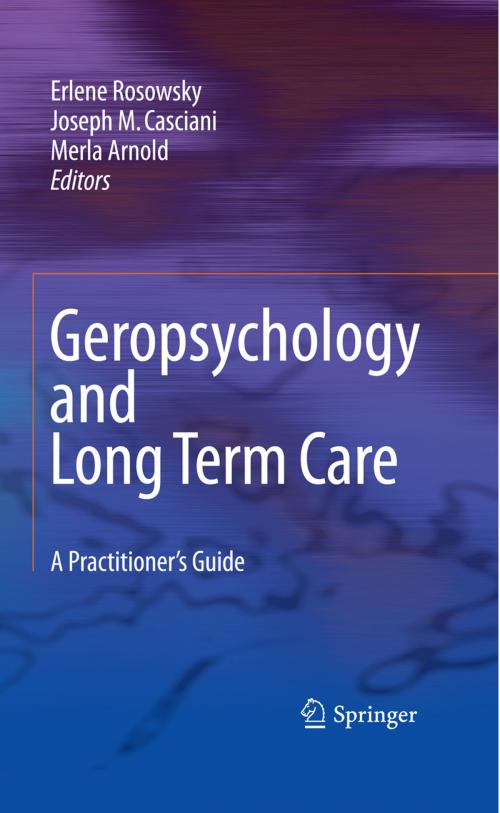Geropsychology and Long Term Care
A Practitioner's Guide
Nonfiction, Health & Well Being, Medical, Specialties, Geriatrics, Family & Relationships, Aging| Author: | ISBN: | 9780387726489 | |
| Publisher: | Springer New York | Publication: | January 23, 2010 |
| Imprint: | Springer | Language: | English |
| Author: | |
| ISBN: | 9780387726489 |
| Publisher: | Springer New York |
| Publication: | January 23, 2010 |
| Imprint: | Springer |
| Language: | English |
It is with great pride that the Psychologists in Long Term Care (PLTC) have sponsored The Professional Educational Long-Term Care Training Manual, and now its second iteration, Geropsychology and Long Term Care: A Practitioner’s Guide. Education of psychologists working in long-term care settings is consistent with PLTC’s mission to assure the provision of high-quality psychological services for a neglected sector of the population, i.e., residents in nursing homes and assisted-living communities. To this end, direct training of generalist psychologists in the nuances of psychological care delivery in long-term care settings has been a major priority. It is a tribute to the accelerating nature of research in long-term care settings that a revision is now necessary. After all, the Professional Educational Training Manual’s initial publication date was only in 2001. However, in the intervening years, much progress has been made in addressing assessment and intervention strategies tailored to the needs of this frail but quite diverse population. It is so gratifying to be able to say that there is now a corpus of scientific knowledge to guide long-term care service delivery in long-term care settings.
It is with great pride that the Psychologists in Long Term Care (PLTC) have sponsored The Professional Educational Long-Term Care Training Manual, and now its second iteration, Geropsychology and Long Term Care: A Practitioner’s Guide. Education of psychologists working in long-term care settings is consistent with PLTC’s mission to assure the provision of high-quality psychological services for a neglected sector of the population, i.e., residents in nursing homes and assisted-living communities. To this end, direct training of generalist psychologists in the nuances of psychological care delivery in long-term care settings has been a major priority. It is a tribute to the accelerating nature of research in long-term care settings that a revision is now necessary. After all, the Professional Educational Training Manual’s initial publication date was only in 2001. However, in the intervening years, much progress has been made in addressing assessment and intervention strategies tailored to the needs of this frail but quite diverse population. It is so gratifying to be able to say that there is now a corpus of scientific knowledge to guide long-term care service delivery in long-term care settings.















